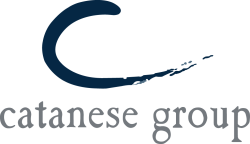Most service industries do not believe that cost accounting applies to them, and believe that it is strictly for other industries such as manufacturing. How could you possibly have cost accounting for a law firm?
I am here to say that all law firms should implement a cost accounting system if they want to understand their own business. By implementing a cost accounting system, you will be able to determine if clients are profitable. You can tell if producers – attorneys or paralegals – are profitable. You can tell if divisions within the firm are profitable. If you have a firm with multiple offices, you can tell if each office is profitable. This information is valuable when considering mergers or acquisitions.
The biggest challenge for a cost accounting system is how to allocate overhead. The cost accounting program I developed calculates overhead at a minimum, approximately 10 to 15%. The secret to a good cost accounting system is to have most expenses directly allocated to a producer. By doing this, you can actually achieve a cost per hour for each producer. This enables you to establish a profit plan based upon goals set above cost per hour rates.
For example, if a partner has 1,000 chargeable hours per year and his/her cost per hour is $225, then his or her billing rate must be at least $225 per hour just to break even. If your profit plan goal is to make $30 per hour, then his/her billing rate must be at least $225 per hour.
Most firms establish billing rates by assumptions. Attorney Smith has been here for 15 years and does good work. His billing rate is $250 per hour. Attorney Jones has been here for 12 years, but she is really good at what she does and is a specialist. Her billing rate is $300 per hour.
After understanding the costs to Attorney Smith and Attorney Jones, the cost per hour for Attorney Smith may be $150 per hour and the cost for Attorney Jones may be $325 per hour. This would make Attorney Smith very profitable ($100/hr.) to the firm, but the firm would lose money on Attorney Jones (-$25/hr.).
This holds true for every client of the firm as well. The cost accounting system would tell you if clients are profitable or not.
After understanding your costs, you should establish a profit plan for the firm. A profit plan is different than a budget. A budget is expense-driven, while a profit plan is revenue-driven. A profit plan establishes revenue goals that the firm works towards each year.
Action Plan
- Implement a cost accounting system.
- Establish a cost per hour for each product.
- Identify profitability by producer, client, division, and office.
- Establish a profit plan for the firm.
Samuel J. Catanese, CPA, holds the position of Leading Partner of Catanese Group, PC. He is involved in strategic planning, profitability analysis, business development, tax planning, and financial and estate planning for many of the clients he represents. He is an expert in the management and administration of professional service companies. Sam can be reached at sjc@catanesegroup.com or 814.255.8400.

